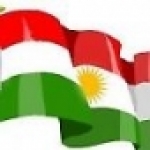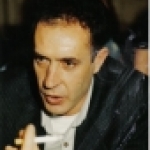Zalmay Khalilzad was named to the board of directors of DNO, the Norwegian oil firm producing oil in Iraqi Kurdistan.
Zalmay Khalilzad’s take on Iraq – Part 1
Posted By Ben Lando On June 18, 2010 @ 10:12 pm In Oil Policy | No Comments
On Thursday, Zalmay Khalilzad was named to the board of directors of DNO, the Norwegian oil firm producing oil in Iraqi Kurdistan.
This is the latest and highest-profile development in the former U.S. ambassador’s return to Iraq. His consulting company, Khalilzad Associates, is also providing advice and expertise to investors interested in Iraq and other countries.
Khalilzad, who is based in Washington, DC but travels extensively, was ambassador to Afghanistan (where he was born) immediately before his posting to Iraq. After two years in Baghdad he became U.S. Ambassador to the United Nations.
Prior to being named to DNO’s board, he spoke with Iraq Oil Report in his Washington office about the future of Iraq’s politics and oil sector.
Ben Lando: What is your take on post-election, pre-government-formation Iraq?
Zalmay Khalilzad: I think this election was a success. A positive step, a positive evolution in Iraqi politics. The level of violence was low. The level of participation was acceptable and the Iraqis voted in a less sectarian manner than in the previous election. The two leading parties, one is clearly a secular, non-sectarian, cross-sectarian party of Ayad Allawi that did very well. At the same time Prime Minister Maliki’s party (Dawlat Al-Qanoon) also presented itself as non-sectarian, cross-sectarian and it did very well as well. Of course still most Shia voted for Shia parties and most Sunnis voted for Iraqiya, but nevertheless it shows evolution in the attitudes of the people.
BL: You were ambassador in Iraq during a quite violent time, when there was a lot of animosity between Shia and Sunni in Iraq. There’s a fear that this could return – maybe in different ways, maybe at a lower level – but that it could. Especially after the elections, if some parties are marginalized, do you think there is a risk of this violence returning?
ZK: You cannot rule it out. It’s possible it could be reignited. It could happen in two ways. One is if there is contestation of the election results, and if takes a very long time to form a government and during this period violence increases. Or if terrorists are able to carry out operations, spectacular operations, that could once again increase insecurity. Also, violence could increase if a narrowly based and sectarian government is formed.
I think one reason for the positive change was there was a greater sense of security and people were tired of the sectarian conflict that had taken place. But my sense is unlikely to go back to the bad old days of 2006 and 2007 after the attack on the Samarra mosque, because institutions are stronger and people are largely tired of sectarianism. It will take a lot to push them back.
BL: One area of friction in the country is not religious-based but ethnic-based. And I’m referring to the ongoing stalemate between Iraq’s Arab majority and Kurdish minority and their political leaders. How do you view, in light of the elections and in the near future, how do you expect the relationship between Arab and Kurdish leadership to play out?
ZK: There are many issues affecting Kurdish relations with the rest of Iraq. There are issues of territory. There are issues of resources. There are issues of relations between the central government and the regional government. I believe that there will be an effort to deal with some of those during the formation of government. Both sides, whoever is the leading Arab party and the Kurds, will face some important choices to make, what issues should be dealt with in the process of government formation and which issues to deal with later.
BL: What issues have been discussed as being left for later and what issues need to be addressed right away?
ZK: The question is whether the territorial issues are going to be the ones to come to an agreement on first, or do you get a roadmap to deal with the territorial issues, based on the constitution, and then you make some progress in regard to the oil and energy issues?
BL: You view those as the top two issues, territorial and resources issues?
ZK: Those are the top two issues. The Kurdish issue is also a lot more complex than it was. First they’re numerically a smaller percentage of the coming parliament than they were of the previous parliament but nevertheless their presence will be significant. Also they are more divided than they were in the previous parliament because now we have got (the new political party) Goran also as a player.
BL: One thing is, Iraq in many ways both needs and is requesting investment from not only Iraqi companies and individuals but foreign investment. Now that you are in the private sector and have started this consulting firm, what type of areas of the economy do you think are the most prospective for foreign investors into Iraq???
ZK: There’s quite a large number of opportunities in Iraq. The most obvious one is in the energy sector given that Iraq is so rich in oil and natural gas. But there are related opportunities in oil services, construction, pipelines, upgrading port facilities, even developing a petrochemical industry in Iraq. Iraq has a very ambitious plan to develop the oil and gas resources.
Other sectors with very substantial potential are telecommunications, banking and insurance, the service areas, the enablers of much else that happens in the economy. The issue of opening additional cell phone competition is very important. And developing the infrastructure in some areas is offering opportunities. Then you’re talking about housing. In the election both leading parties talked about 2 million new housing units to be built in the foreseeable future. There are vast potential for companies from abroad to invest. There is also other infrastructure from roads to railways, whether up north or the rest of Iraq.
The whole area of continuing to build up Iraqi security forces to be able to do what they need to do for themselves. It used to be that a lot of the work was done through the U.S. military,. But as the role of the US military diminishes, Iraq will have to decide what sort of border security it will have with either Syria or Iran or others. How they’re going to achieve that? There will be a role for the private sector from abroad for that as well. How you do maintenance work? How do you maintain depots? How do you do a lot of the work that was being done through US contractors working through the US military? Iraqis will have to decide how they are going to carry out the tasks that are necessary.
So there is a huge potential in Iraq’s economic future whose development is likely to be the key focus of the next government, it’s likely to have a big impact not only on Iraq but a big market a big opportunity for outsiders.
BL: Where have you found the most opportunities for your clients or for yourself?
ZK: We have about a dozen clients interested in Iraq and the surrounding areas. It covers a number of different sectors. Including some in the energy sector, and telecommunication and services. I think this is the first year, we’ve just started and I’m satisfied with the progress that my company has made. I believe that economic development of Iraq is important for the success of democracy in Iraq and the buildup of security institutions of Iraq because you have to have the resources to do what’s necessary. Those resources can only be made available if there is economic development, if people find jobs, if people see benefits of this new order. And if government revenues are sufficient in terms of the services that the government is obligated to provide to the citizens of Iraq.
BL: As you mentioned, a big thing is further developing their massive oil and gas reserves which can not only help feed the basic services of the country but also bring in a lot of revenue. Where are you seeing your clients are they invested in, up north or the rest of Iraq?
ZK: The whole of Iraq. I’ve got clients interested in the north but most of my clients are interested in the rest of Iraq. It covers the entire country.
BL: Are these American clients?
ZK: I have American clients, but we also have non-American clients as well; but most of my clients are American clients.
BL: And in the oil or energy sectors?
ZK: It includes the energy sector but not exclusive to the energy sector.
BL: What deals have you reached?
ZK: We have had, we are in the process of discussions with Iraqis and these firms. There have been some progress made but I’m not in a position for reasons of confidentiality of it to say which ones we were involved in.
BL: Is this with the KRG?
ZK: No, with Iraq.
BL: There have been no deals on energy issues with the KRG?
ZK: On energy issues, no, not with the KRG.
BL: I noticed that I was seeing pictures from announcements from the KRG from two events last year, one was when they started exporting the oil and one was when they opened the refinery, and you were there in the front row of both pictures.
ZK: Well, I have good friends in Iraq in both the KRG and in Baghdad and I was a guest of the government in both instances. I had no stake in either of those two events, I was invited to attend those events but my company did not represent any of the parties involved in completing these projects.
BL: It is an important distinction then for people who follow Iraq and especially internal politics in Iraq: you were a guest of the government, but which party or which last name invited you?
ZK: The government was a single government, both PUK and KDP were part of it. I don’t think that there was an issue. I have a good relationship with many Iraqi leaders, knowing them when they were in the opposition, ‘til now, and that’s why they’ve honored me with invitations to some of their events. Success events, as they see it.
BL: These two events specifically, before I even heard that you were there, I remember thinking that these were quite potentially controversial events and it turns out they were. And some people said that it was a little confusing for the former Ambassador to be at such controversial events and that it could add to some confusion in negations between the KRG and Baghdad. Do you find it that way?
ZK: I have not found it that way. I do not believe those projects were controversial in Baghdad. I go to Baghdad often – although I have gotten more press when I’ve been in Erbil. The development of the refinery was for domestic consumption and was approved by all those concerned. On the second occasion, the start of exports of oil from the fields in Kurdistan was done – I was told with the approval of Baghdad. The president of Iraq, President Talabani was there. That’s different than some of the oil contracts that have resulted in the blacklisting by Baghdad of companies involved.
The second part of Zalmay Khalilzad’s interview with Iraq Oil Report will be published next week.
Article printed from Iraq Oil Report: http://www.iraqoilreport.com
URL to article: http://www.iraqoilreport.com/politics/oil-policy/zalmay-khalilzads-take…







